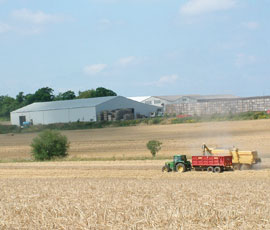‘Flawed’ food chain needs a longer term approach

Price-chasing, inefficient and too fond of a short-term approach. This is the Rabobank verdict on what it calls the “flawed” food and agriculture supply chain.
A new report from the global bank with agriculture at its roots calls for a transformation to longer-term supply agreements and co-operative relationships between partners in the chain.
The report encourages the industry to abandon its preoccupation with short-term price spikes – dedicated supply chains could make the sector more productive, innovative, safe and sustainable, it said.
“The dominant supply chain model is currently structured in a linear fashion, in which suppliers, processors and retailers form short-term partnerships independent from the influence and interests of other members of the chain,” said the report.
“This model is highly inefficient, restricting food and agriculture (F&A) companies’ ability to respond to changes in supply and demand dynamics, while fleeting partnerships limit productivity and restrict innovation.
“This system also results in wasteful processes that cause more environmental degradation than is necessary.”
An increasingly complex environment means that these businesses had to take into account not just traditional commodity price and demand issues but also the food versus fuel debate, the extent to which speculation drives their input costs and availability, said the report.
A crucial aspect of longer term partnerships was the sharing of information and insights, said Justin Sherrard, Rabobank global strategist.
“Closer co-operation of this sort will transform the nature of F&A partnerships from transactional ones that are centered around chasing price, to a system focused on creating value.”
Potential benefits included:
- Reduced risk and better ability to react to market risks
- Improved productivity and reduced waste
- Access to new markets
- Enhanced brand and reputation
- Improved access to capital – innovative finance models could be developed within the chain
Rabobank predicts rise in biogas
